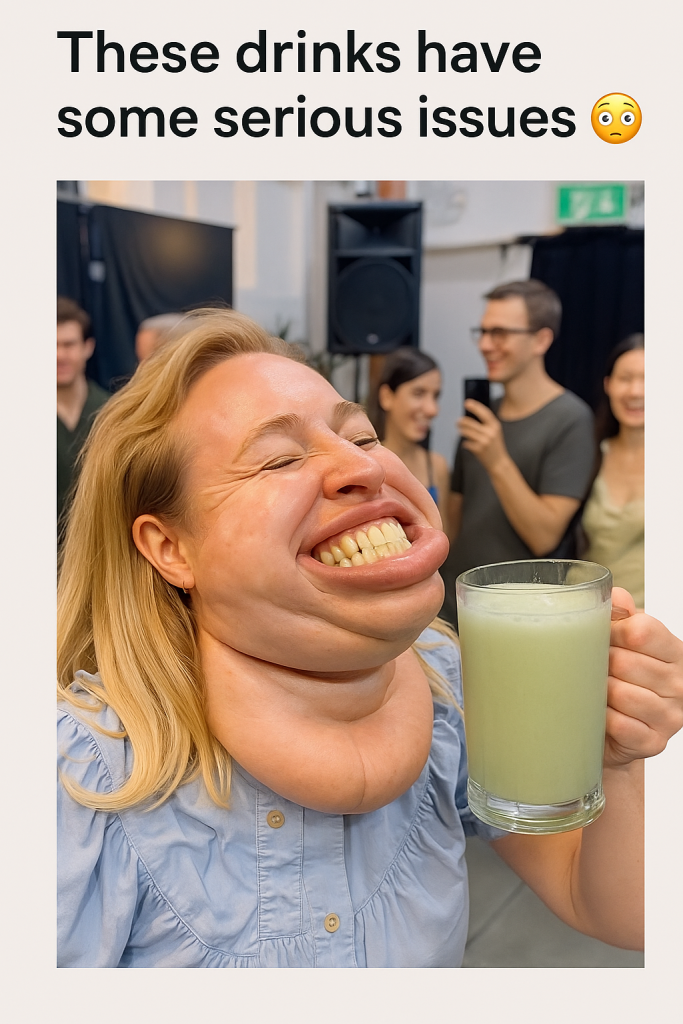In recent weeks, a wave of concern has rippled across social media and public health forums regarding several widely consumed beverages. From soft drinks to energy drinks and even some seemingly innocuous fruit juices, a number of popular brands have come under scrutiny for potential health risks and ingredient-related controversies.
The discussion began when consumer advocacy groups and health experts highlighted alarming findings in routine product screenings and regulatory reviews conducted earlier this year. While no single product dominates the narrative, the issues center around a few common threads: undisclosed additives, excessive sugar and caffeine levels, and potential contamination risks.
Undisclosed Ingredients Raises Eyebrows
One of the main concerns involves ingredients not clearly listed or adequately disclosed on product labels. Several beverages were found to contain synthetic compounds and flavor enhancers that some experts warn could pose long-term health concerns with regular consumption. These include controversial additives such as certain artificial sweeteners and colorings that have already faced restrictions in various countries.
Consumers are particularly wary because transparent labeling is crucial for those with allergies, sensitivities, or specific dietary restrictions. The recent revelation has sparked calls for stricter regulations and more rigorous oversight to ensure all ingredients are clearly and accurately declared.
Excessive Sugar and Caffeine Content
Another key issue flagged is the unexpectedly high levels of sugar and caffeine found in certain drinks, especially among products targeted to younger demographics. While sugar and caffeine are common ingredients in many refreshments, the quantities in some beverages exceed daily recommended limits, raising alarms about the potential for increased risks of obesity, diabetes, heart issues, and sleep disorders among regular consumers.
The health community has long cautioned against high sugar intake, linking it to a myriad of chronic illnesses. The caffeine content in some so-called “natural” or “herbal” energy drinks also frequently surpasses safe daily thresholds, prompting warnings particularly for adolescents and pregnant women.
Potential Contamination Scares
In addition to ingredient concerns, recent quality assurance tests have revealed instances of contamination with harmful substances in a few batches of popular drinks. Though the numbers are limited and many brands have swiftly issued recalls or stepped up quality controls, the news has helped fuel public unease.
Contaminants detected include traces of heavy metals and microbial impurities, which pose health risks if ingested in significant quantities. Experts stress the importance of maintaining rigorous manufacturing practices to safeguard consumers against such hazards.
What This Means for Consumers
With these revelations, consumers are advised to pay closer attention to product labels and ingredient lists, moderate their intake of sugary and caffeinated beverages, and stay informed about recalls and safety advisories. Many health professionals suggest shifting toward natural, less processed drink options like water, unsweetened teas, and freshly squeezed juices.
Meanwhile, advocacy groups are pushing for increased transparency and more stringent industry-wide standards, emphasizing that consumers deserve to know exactly what they are putting into their bodies.
In Summary:
- Several popular drinks have recently been flagged for undisclosed additives and high sugar and caffeine levels.
- Contamination incidents, though rare, have heightened consumer concern and prompted recalls.
- Experts recommend vigilance, moderation, and opting for natural alternatives when possible.
- Calls for stricter regulations and better labeling continue to grow louder in response.
As the beverage industry grapples with these challenges, consumers are encouraged to stay informed and prioritize health-conscious choices. The evolving landscape serves as a reminder that even everyday drinks deserve scrutiny



